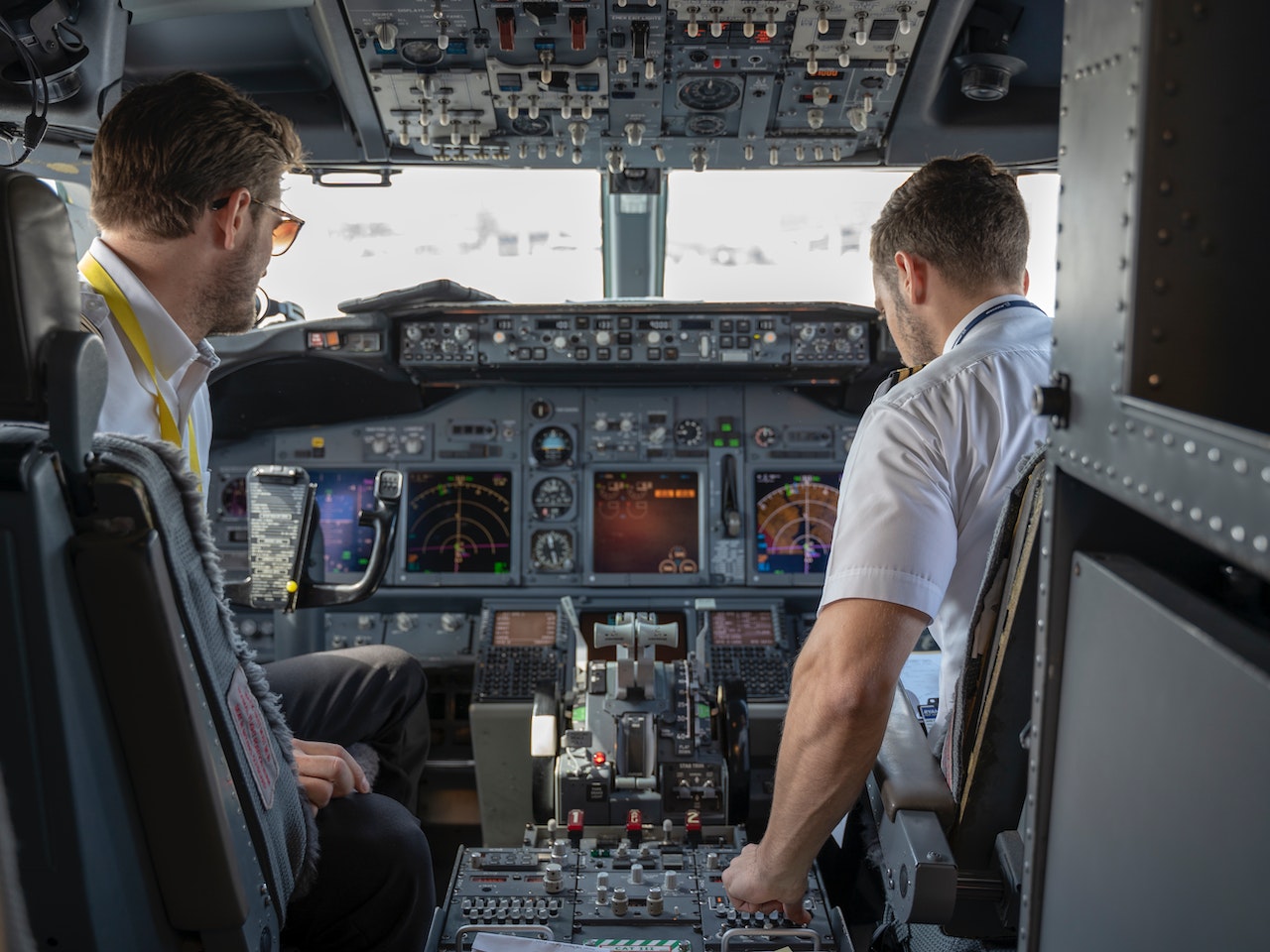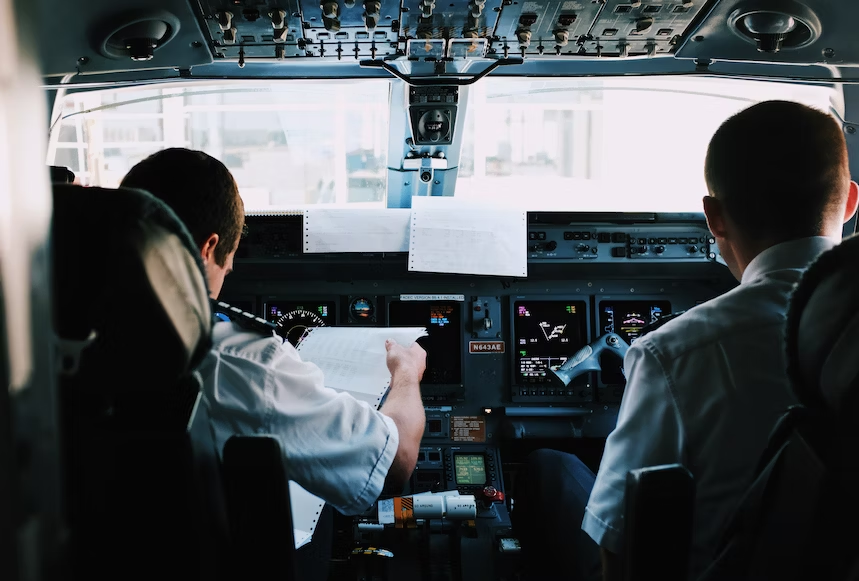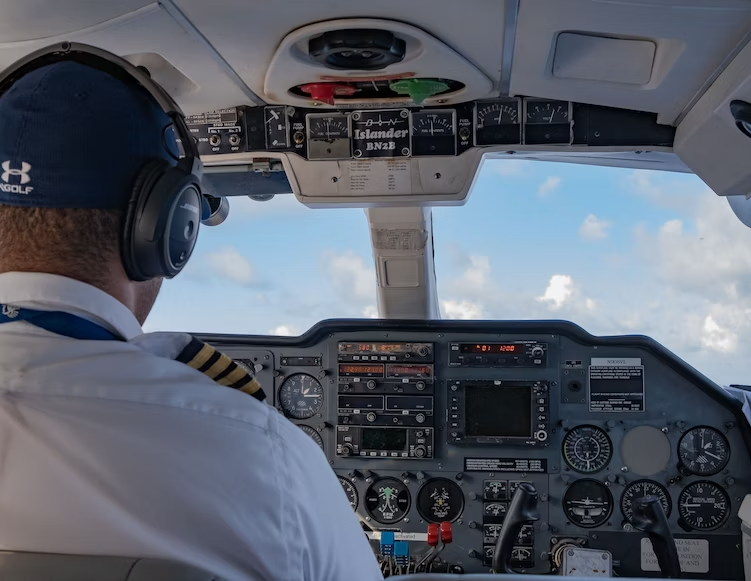Comments
- No comments found

Flight training requires a strong understanding of an airplane's controls, instruments, and systems, which will enhance your learning experience.
Embarking on a journey to the skies can be an exhilarating experience, filled with the thrill of freedom and the beauty of the world from above. Whether you dream of becoming a professional pilot or simply want to explore the wonders of aviation, taking flight lessons is an essential first step. However, before you soar into the wild blue yonder, it's important to have a solid understanding of what lies ahead. In this comprehensive guide, we will explore everything you need to know before embarking on your flight training adventure.

Choosing the right flight school is crucial, as it can significantly impact the quality of your training and overall experience. Look for flight schools that are reputable, accredited, and have a strong track record in producing competent pilots. The school you choose should also align with your goals and offer the services you need. If you aim to join JetBlue Airlines or another popular carrier, look for a school with an established reputation for providing quality training and has an excellent placement rate. On the other hand, if you are just looking to gain flying experience for fun, a smaller local flight school may be more suitable.
Researching flight schools will help you find the one that aligns with your goals and values. Take the time to visit different schools, meet instructors, and get a feel for the overall learning environment. Remember, the right flight school will not only provide excellent instruction but also foster a supportive community of fellow aviators
Aviation demands physical and mental fitness. Before commencing flight lessons, aspiring pilots must obtain a medical certificate from an aviation medical examiner. This examination ensures that you meet the required health standards set by aviation authorities. It's essential to consult with an aviation medical professional to ensure you are fit to fly.
Schedule an appointment with an aviation medical examiner early in your flight training journey. They will conduct a thorough assessment to determine your medical fitness for piloting an aircraft. If any concerns or limitations arise, they can guide you through the necessary steps for obtaining the required medical clearance. Prioritizing your health will contribute to safe and successful flying experiences.
Flight training is typically divided into different phases, each building upon the previous one. The initial phase focuses on basic maneuvers, handling the aircraft, and understanding the fundamentals of flight. As you progress, you'll move on to more complex tasks, such as cross-country navigation, instrument flying, and emergency procedures. Each phase has specific learning objectives designed to develop your skills and knowledge progressively.
Flight training follows a structured curriculum designed to cultivate competence and confidence. Each phase introduces new challenges while reinforcing previously learned skills. Embrace the progression and focus on mastering one skill set before moving on to the next. Celebrate each milestone along the way, as it represents another step closer to achieving your aviation goals.
Flight training requires a significant time commitment. Consider your availability and create a realistic schedule that allows for consistent training. Be prepared for weather-related delays, maintenance issues, and other unforeseen circumstances that may affect your training timeline. Consistency and dedication are key to progressing efficiently.
Understand that flight training is not a sporadic endeavor. Plan your schedule accordingly, setting aside dedicated time for ground school, simulator sessions, and flight lessons. Be flexible and patient, as external factors may occasionally disrupt your training routine. Remember that each hour spent in the cockpit contributes to your proficiency as a pilot, and consistent practice is vital to developing the necessary skills and muscle memory.
Aviation is built upon a foundation of safety. Prioritize safety at all times, both in the air and on the ground. Adhere to pre-flight checklists, follow proper procedures, and be mindful of potential risks. Never compromise safety for expediency or excitement. Developing a safety-conscious mindset will ensure you make sound decisions throughout your flying career.
Safety is the cornerstone of aviation. Embrace a culture of safety, committing to thorough pre-flight inspections, meticulous planning, and adherence to regulations and best practices. Continually hone your situational awareness and decision-making skills, recognizing that safety extends beyond the cockpit. Be proactive in identifying and mitigating potential hazards, cultivating a mindset that prioritizes the well-being of yourself, your passengers, and fellow aviators.
Learning to fly can be challenging and requires determination. There may be moments of frustration or setbacks, but staying focused and persistent will help you overcome obstacles. Remember, every successful aviator started as a beginner. Embrace the learning process, maintain a positive mindset, and celebrate your achievements along the way.
Flight training is a journey that demands resilience and tenacity. Embrace challenges as opportunities for growth, viewing setbacks as learning experiences rather than failures. Seek support from fellow aviators, mentors, and your flight school community. Celebrate milestones, no matter how small, and reflect on how far you've come. By persisting through the challenges, you will emerge as a confident and skilled pilot.

Taking flight lessons is an incredible opportunity to embark on a journey of exploration, skill-building, and personal growth. By setting clear goals, researching flight schools, understanding the costs, and embracing the learning process, you can lay a strong foundation for your aviation adventure. Remember, the sky is not just the limit—it's your gateway to endless possibilities. So, spread your wings, reach for the skies, and let your dreams take flight!
Leave your comments
Post comment as a guest